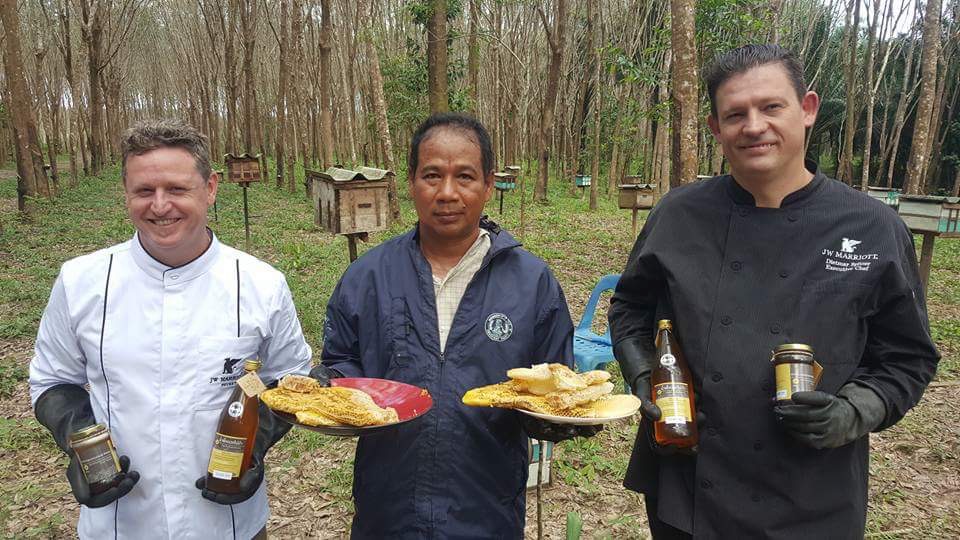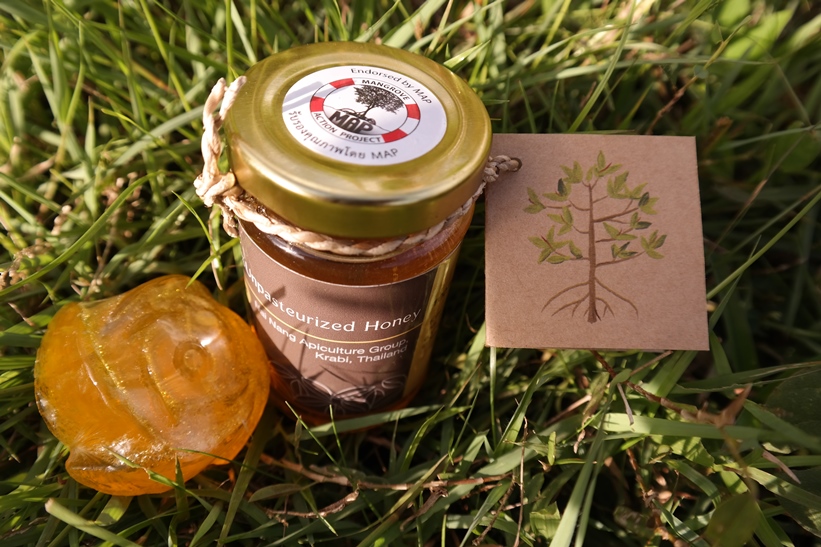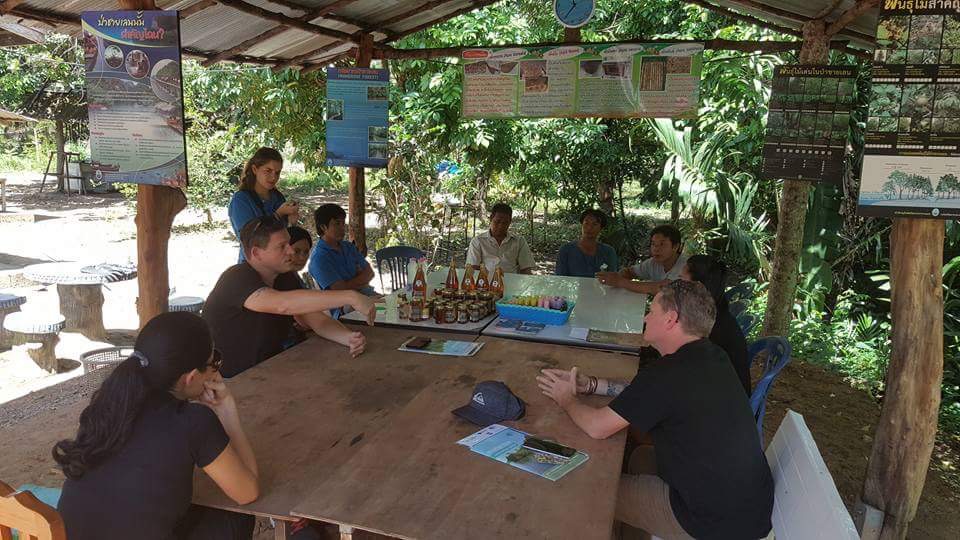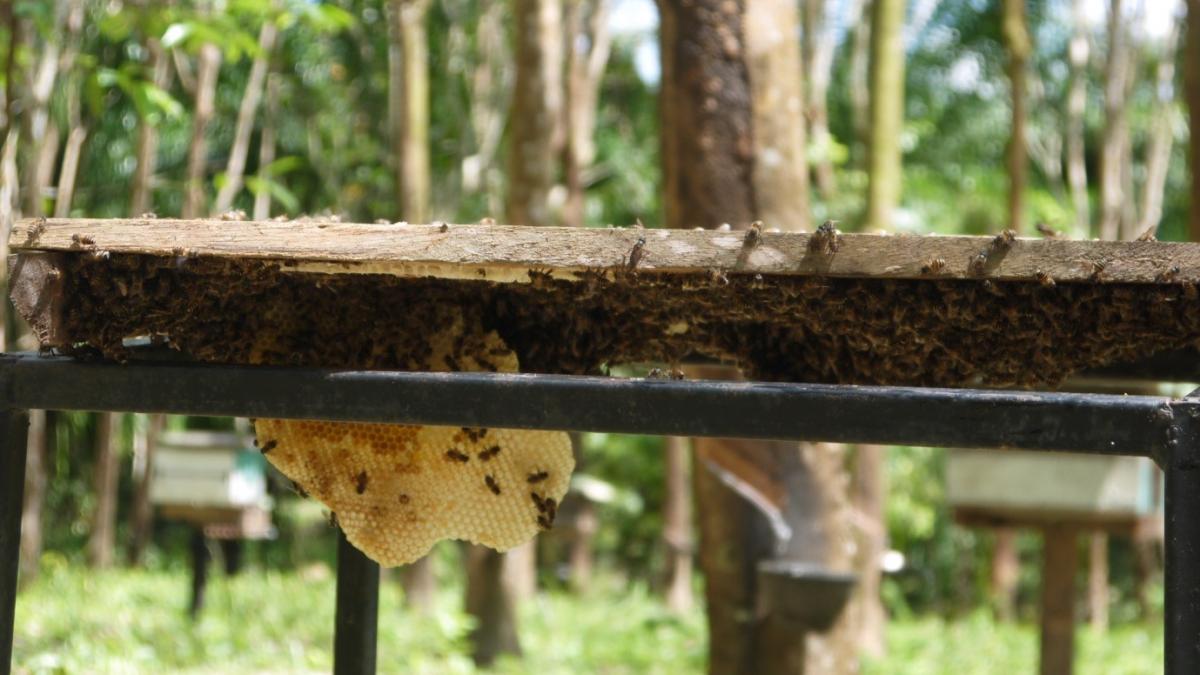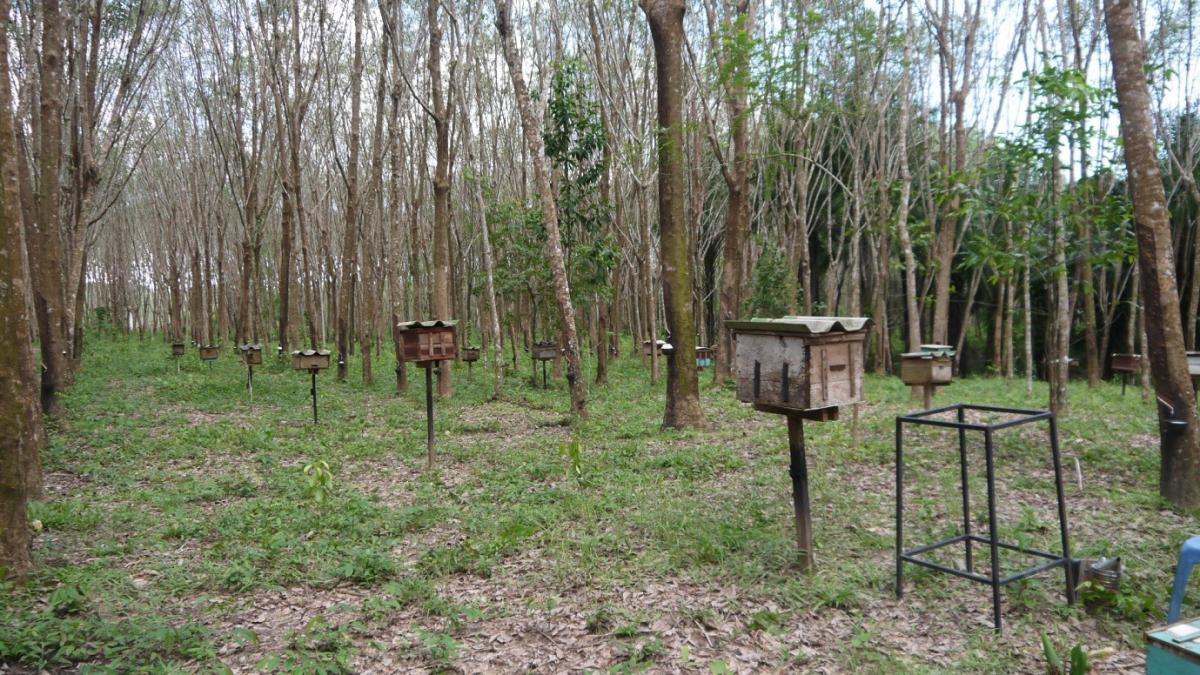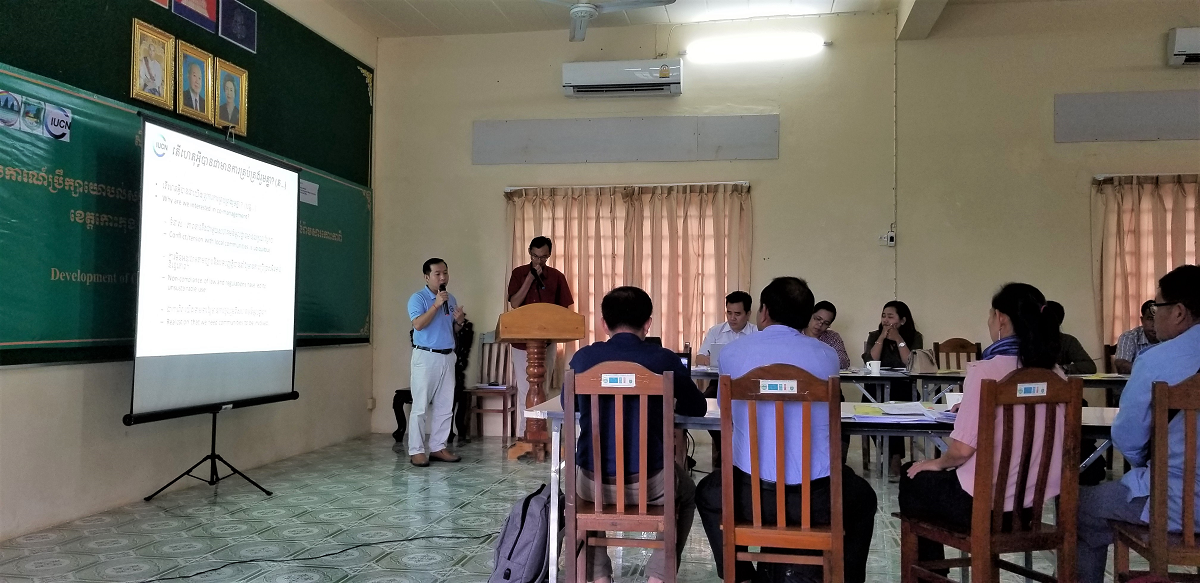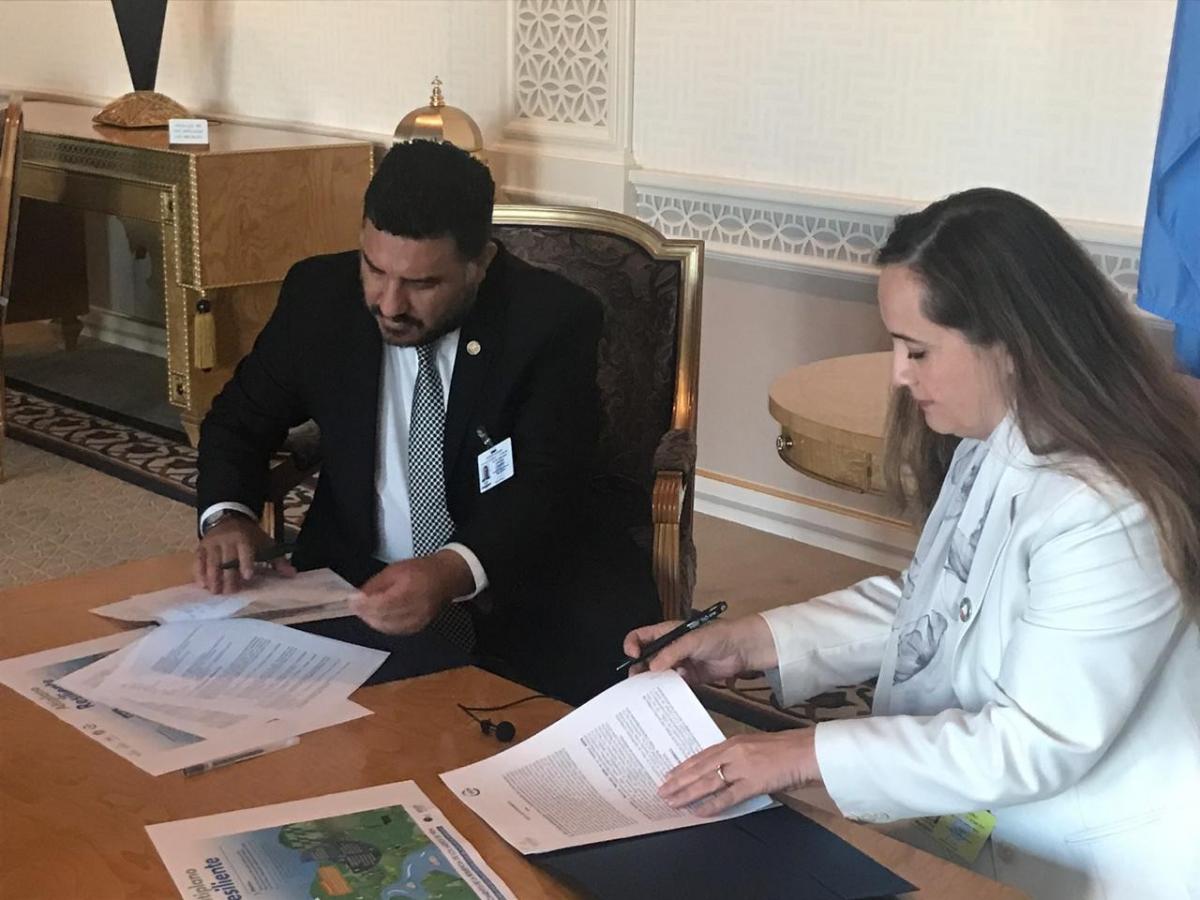Bees: An income generator and mangrove conservation tool for a community in Thailand
In Krabi province, Thailand, beekeeping contributes to supporting sustainable livelihoods. Not only does the activity help generate income for families, it also promotes community-based conservation.
Nai Nang Honey is produced by a beekeeping community enterprise in Nai Nang Village, Krabi Province, Thailand. The registered community enterprise was formed from the Khaokram mangrove and coastal conservation group established in 2003. The group aims to restore mangrove forests surrounding its village, and uses bees to assist with pollination.
IUCN partner, Mangrove Action Project (MAP) introduced the Community-Based Ecological Mangrove Restoration model to the conservation group. In 2014, after several members of the conservation group decided to form an apiculture group to generate alternative income from the honey products, MAP provided technical training on apiculture, as well as training sessions on how to produce value-added honey products such as soap and shampoo. MAP also helped provide woodworking tools, and marketing support.
The all natural Nai Nang Honey is raw and unpasteurised, is sustainably harvested once a year in April from constructed hives which are colonised by wild bees, Apis cerana. The bees gather nectar from seasonal flower blossoms in fruit orchards and mangrove tree species such as the Avicennia alba, Fragellaria indica, Phoenix paludosa, Sonneratia caseolaris and Xylocarpus moluccensis. This combination of nectar gives the honey a distinctive sour and salty taste.
An agreement that villagers producing honey can no longer use pesticides on their crops has been made with MAP to further promote their organic rice farming and ensure that the collected honey is pesticide-free.
At Nai Nang Village, bees are not only a source of income that helps support local livelihoods, they are also an important factor in long-term local mangrove conservation efforts. Of the honey product sales, 15 percent goes to the Nai Nang Village Mangrove Conservation Fund.
After several pre-visits to the village, a meeting on 3 November 2016 was conducted to establish a partnership between the Nai Nang Apiculture Group and Marriott Hotels & Resorts under the IUCN-Marriott Partnership Project.
Marriott Hotels & Resorts supports responsible fair-trade businesses as part of their corporate social responsibility strategy. In line with this, the international hotel chain uses Nai Nang Honey in its restaurants, and will share the Nai Nang Apiculture Group’s story – as well as efforts for conservation of bees and mangroves – with guests at their hotels and resorts.
Currently, Nai Nang Apiculture Group has 51 members, of which 40 men are beekeepers and 11 women are value-add honey product producers. A total of 318 constructive hives (with 216 hives that have been colonised) have been installed in the village orchards. Approximately 400 kilograms of honey was produced last year with an increasing production trend this year.
This partnership will secure the future for this community, and provides new opportunities for many families. It also contributes to mangrove conservation efforts.
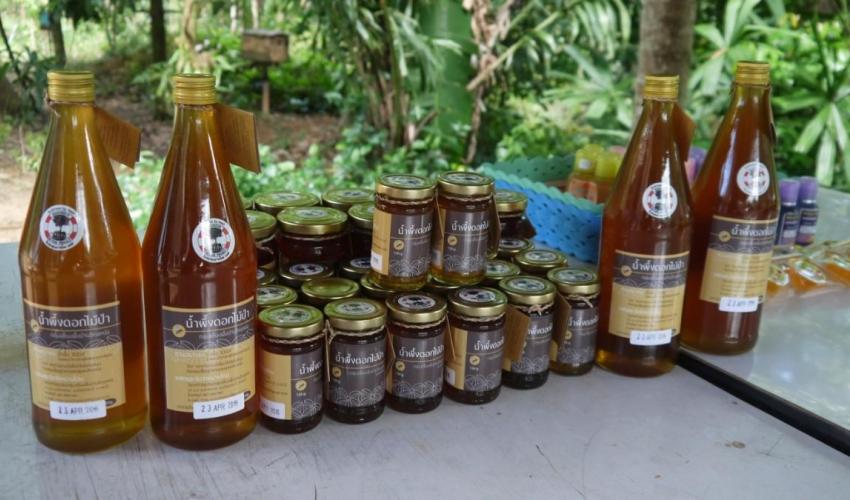 Photo: © IUCN
Photo: © IUCN
